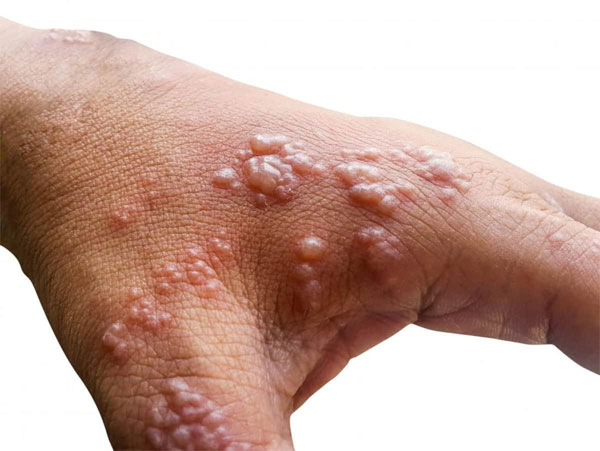Daijiworld Media Network - New Delhi
New Delhi, Nov 2: The World Health Organization (WHO) has raised concern over the expanding spread of mpox (formerly known as monkeypox), revealing that the virus has claimed 17 lives in Africa over the past six weeks and continues to appear in new countries.
According to the WHOŌĆÖs 59th situation report on the multi-country mpox outbreak, 17 African nations have reported active transmission between September 14 and October 19, during which 2,862 confirmed cases and 17 deaths were recorded.
The highest numbers of infections during this period were reported from the Democratic Republic of Congo, Liberia, Kenya, and Ghana, the report noted.

The WHO also confirmed that Malaysia, Namibia, the Netherlands, Portugal, and Spain have detected the clade Ib variant of the mpox virus (MPXV) for the first time. Additionally, Belgium, Canada, Germany, Italy, Qatar, and Spain reported imported cases linked to international travel.
In a concerning development, six countries ŌĆö Italy, Malaysia, the Netherlands, Portugal, Spain, and the United States ŌĆö have identified local cases without travel history, suggesting community transmission of the clade Ib strain. These nations are now classified by WHO as experiencing ongoing local spread.
The report also highlighted five mpox cases among individuals who identify as men who have sex with men (MSM), marking the first evidence of previously undetected circulation of the clade Ib strain within this population. Until now, only clade IIb infections had been reported in this group since 2022.
Globally, as of September 2025, 42 countries across all WHO regions had reported a total of 3,135 confirmed mpox cases and 12 deaths.
Mpox is a viral zoonotic disease that spreads mainly through close physical or skin-to-skin contact. Common symptoms include fever, swollen lymph nodes, sore throat, muscle aches, back pain, and a characteristic skin rash.
Health authorities have urged heightened surveillance, testing, and vaccination in high-risk areas to curb the virusŌĆÖs spread, particularly as new strains continue to emerge in different parts of the world.